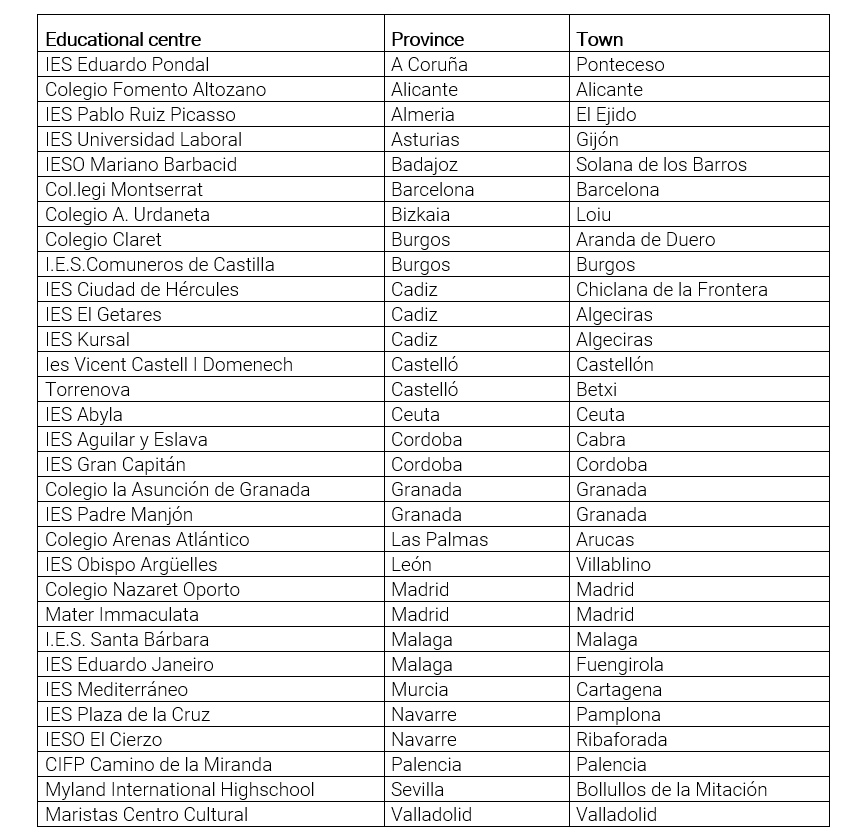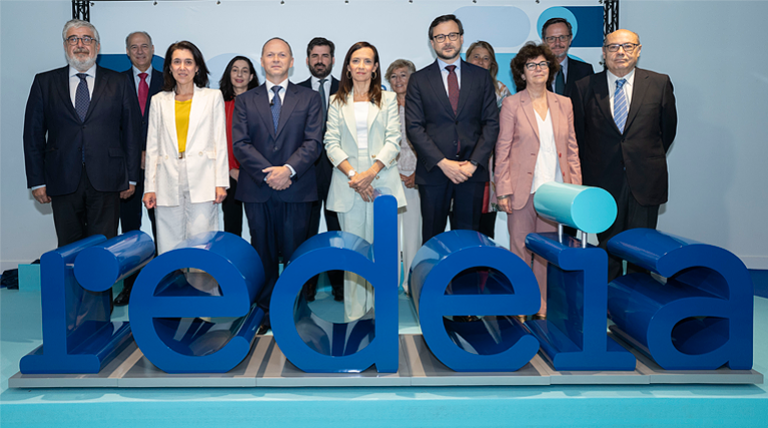We are a global operator of essential infrastructure
-
RedeSTEAM is a competition organised by Redeia to increase the number of girls on scientific and technological courses, where they currently represent just 13% of students.
-
‘Girls are attracted to STEAM when they discover that they can use it to combat climate change, improve the lives of others, and make the world a more sustainable, fair and inclusive place,’ says Beatriz Corredor, President of Redeia.
-
31 educational centres from 13 autonomous communities took part in this second round of the competition.
-
The winners will collect their prizes at Redeia’s Jornadas de Sostenibilidad (Sustainability Conference) on 17 and 18 October in Madrid.
A total of 149 students from the 3rd and 4th years of ESO (Educación Secundaria Obligatoria/Secondary School) or an equivalent vocational training level, compete to create a more sustainable world through science, technology, engineering, art and mathematics at the second round of RedeSTEAM, a competition created by Redeia to spark interest in science and technology among the youngest students and to increase the number of girls on STEAM courses, where they currently represent just 13% of students.
‘It is impossible to achieve sustainable development if women continue to be under-represented in essential sectors such as technology and science. In order to tackle this imbalance, you have to address the root cause. Equal, unbiased and gender-stereotype-free education is essential for encouraging the students of today, professionals of tomorrow, to pursue STEAM courses by linking these disciplines to solving today’s biggest challenges’, stated Beatriz Corredor, President of Redeia, adding: ‘Girls are attracted to STEAM when they discover that they can use it to combat climate change, improve the lives of others, and make the world a more sustainable, fair and inclusive place.’
At RedeSTEAM, participants propose solutions to the challenges on the 2030 agenda, particularly those related to poverty, gender inequality and the environment and the electricity and telecommunication sectors.
The winners will collect their prizes at Redeia’s Jornadas de Sostenibilidad (Sustainability Conference) on 17 and 18 October in Madrid, where they will also be able to participate in workshops that will continue spark their interest in STEAM. The winning educational centres will receive equipment and materials for laboratories and classrooms dedicated to STEAM subjects.
The participating centres were from Andalusia, Castilla y León, Catalonia, the Community of Madrid, the Comunidad Foral de Navarra, Valencia, Extremadura, the Canary Islands, Euskadi, the Principality of Asturias, Murcia, Galicia and the autonomous city of Ceuta.

RedeSTEAM is one of the initiatives that stems from the ‘Alianza STEAM por el talento femenino. Niñas en pie de ciencia (STEAM Alliance for Female Talent. Girls in Science),’ created by the Ministry of Education and Vocational Training, with which Redeia is associated. Through this competition, the company strives to create an education and training system free from gender stereotypes, that encourages female empowerment in STEAM disciplines within the educational system, and that contributes to eliminating the gender divide in terms of accessing said disciplines, as is happening internationally.














